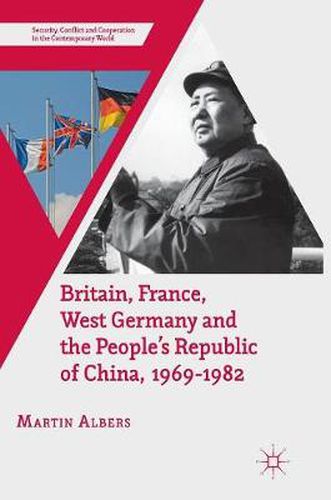Readings Newsletter
Become a Readings Member to make your shopping experience even easier.
Sign in or sign up for free!
You’re not far away from qualifying for FREE standard shipping within Australia
You’ve qualified for FREE standard shipping within Australia
The cart is loading…






This book focuses on helping readers to fill the gap of the little known history between Western Europe and its most important trading partner: the People’s Republic of China. Inspired by the economic and political signifance of Sino-European relations, this book shows how the China policies of the three biggest states of Western Europe - Britain, France, and the Federal Republic of Germany - helped China reintegrate into the international community in the 1970s. Against the background of the Cold War, the end of Maoism, and the emergence of globalization, the governments in Bonn, Paris and London had to find ways of dealing with Europe’s declining influence and promote their own national interests in Asia.
Based on newly declassified government files, readers will find such sources invaluable in understanding the argument that, despite pursuing very different policies, the three governments supported a rapid expansion of peaceful exchange between the People’s Republic and Europe and substantially contributed to the success of Beijing’s reform policy.
$9.00 standard shipping within Australia
FREE standard shipping within Australia for orders over $100.00
Express & International shipping calculated at checkout
This book focuses on helping readers to fill the gap of the little known history between Western Europe and its most important trading partner: the People’s Republic of China. Inspired by the economic and political signifance of Sino-European relations, this book shows how the China policies of the three biggest states of Western Europe - Britain, France, and the Federal Republic of Germany - helped China reintegrate into the international community in the 1970s. Against the background of the Cold War, the end of Maoism, and the emergence of globalization, the governments in Bonn, Paris and London had to find ways of dealing with Europe’s declining influence and promote their own national interests in Asia.
Based on newly declassified government files, readers will find such sources invaluable in understanding the argument that, despite pursuing very different policies, the three governments supported a rapid expansion of peaceful exchange between the People’s Republic and Europe and substantially contributed to the success of Beijing’s reform policy.